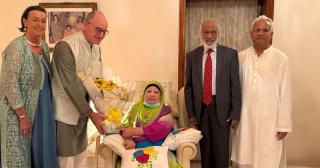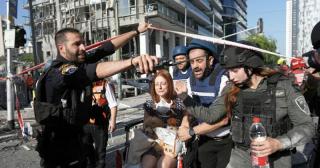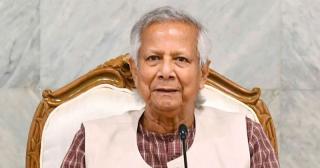
Iran said Friday it would not resume nuclear negotiations with the United States until Israel halts its attacks, as Israel's military chief warned the week-old war will be "prolonged," AFP reports.
A series of blasts were heard in Tehran on Friday as Iran's Fars news agency said air defences had been activated, as Israel kept up its bombardment and Iran launched missiles at its arch enemy.
"We must be ready for a prolonged campaign," Israeli military chief Eyal Zamir told Israelis in a video statement, eight days after his country launched a massive wave of strikes it said were aimed at stopping Iran from developing nuclear weapons -- an ambition Tehran has denied.
"The campaign is not over. Although we have made significant achievements, difficult days still lie ahead," he said.
As US President Donald Trump mulls the prospect of entering the war between the two foes, top diplomats from Britain, France and Germany met with their Iranian counterpart Abbas Araghchi in Geneva.
Referring to nuclear negotiations with Washington that had been derailed by the war, Araghchi said after the meeting that "Iran is ready to consider diplomacy once again and once the aggression is stopped".
Tehran did "support the continuation of discussion with" the European countries and was willing "to meet again in the near future", Araghchi told reporters.
French Foreign Minister Jean-Noel Barrot said "we invited the Iranian minister to consider negotiations with all sides, including the United States, without awaiting the cessation of strikes, which we also hope for".
Barrot said there "can be no definitive solution through military means to the Iran nuclear problem" and warned that it was "dangerous to want to impose a regime change" in Iran, after Israeli Prime Minister Benjamin Netanyahu did not rule out killing supreme leader Ayatollah Ali Khamenei.
On the streets of Tehran, many shops were closed and normally busting markets largely abandoned on Friday, an AFP journalist reported.
"I'm not afraid of the war, I stay open but business is really bad," said a vendor at the Tajrish market who declined to give his name for security reasons.
Nearby, police set up a checkpoint while workers repaired a road damaged in a recent Israeli strike.














